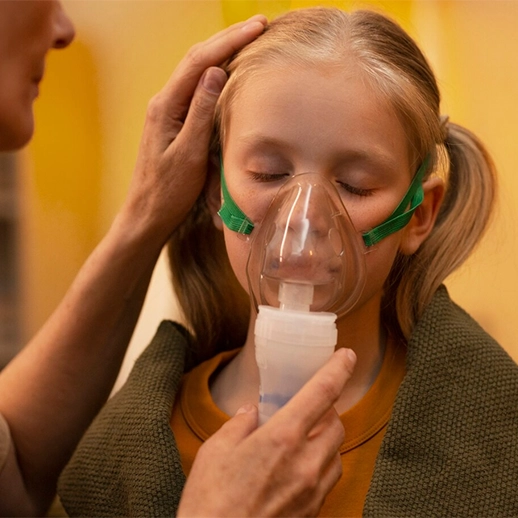Cystic fibrosis symptoms can vary depending on which organ system is affected. Respiratory-related symptoms include persistent coughing, excessive mucus, and frequent lung infections.
Cystic fibrosis symptoms may become more noticeable over time, leading to a decline in quality of life. Blockages in the pancreatic ducts reduce the production of digestive enzymes, making it harder for the body to absorb nutrients. In the long term, problems such as liver disorders, diabetes, and osteoporosis may arise. Therefore, early diagnosis and regular follow-up are of great importance.
Some of the prominent clinical features are:
What Are the Symptoms of Cystic Fibrosis?
Cystic fibrosis (CF) causes mucus, sweat, and digestive fluids in the body to become abnormally thick. This mainly affects the lungs and digestive system. A genetic disease, cystic fibrosis leads to blocked airways and more frequent infections due to the thick and sticky mucus.
Common symptoms of genetic respiratory disease:
Persistent coughing, difficulty breathing, and recurring lung infections are prominent.
Fatty, foul-smelling stools and various digestive problems are common.
Difficulty in gaining weight due to poor nutrient absorption.
In CF patients, sodium and chloride levels in sweat may be higher than normal.
Due to reduced energy production, a state of constant tiredness is often seen.
The question “How is cystic fibrosis treated?” depends on the progression and severity of symptoms. The treatment plan includes medications to open the airways, antibiotics, and enzyme supplements to aid digestion. Physiotherapy plays a vital role in helping patients clear their lungs. Early diagnosis is critical in improving the quality of life.

Cystic fibrosis affects not only the respiratory and digestive systems but also leads to complications in other organs. For example, blockage of the pancreatic ducts can increase the risk of diabetes. In males, it may also cause infertility due to obstructions in the reproductive system.
Salt imbalance in the sweat glands may cause electrolyte loss, leading to serious dehydration. For this reason, individuals with cystic fibrosis must ensure adequate fluid intake and carefully maintain electrolyte balance in daily life.
At What Age Do Cystic Fibrosis Symptoms Appear?
This disease often shows its first signs during infancy. Within weeks of birth, symptoms like loss of appetite, poor weight gain, and persistent coughing may become noticeable. In some cases, these symptoms may be mild, and diagnosis may be delayed until childhood.
The onset age of the disease varies depending on the type of genetic mutation and the organ system affected. Digestive problems may start right after birth in some infants, while respiratory symptoms may become evident later. Signs like growth delays and frequent infections can be detected with careful observation.
When suspicious signs are observed during routine check-ups, further testing should begin without delay. Particularly, the sweat test is an important step in confirming the diagnosis. Identifying symptoms at an early age greatly improves treatment outcomes.
Frequently Asked Questions
Blood tests are used to detect genetic mutations, especially in the CFTR gene, which are decisive in diagnosing the disease. These tests can also identify carriers and individuals at risk at an early stage.
Ultrasound is not sufficient for directly diagnosing this condition. However, secondary organ damage can sometimes be detected through imaging. In the prenatal period, signs like intestinal enlargement may be noted.
Along with genetic testing, the sweat test and several laboratory tests are important. Stool analysis, enzyme levels, and liver function tests are used to assess systemic impacts of the disease.
Extremely salty sweat suggests an imbalance of sodium and chloride in the body. This is common in CF patients and often accompanies electrolyte loss-related complaints. Prolonged salt loss may increase the risk of dehydration.
The most frequently used tests include the sweat test and genetic analysis. Taking action before symptoms become persistent is essential for early diagnosis. Denge Tıp offers a multi-faceted approach in evaluating the diagnosis process.











